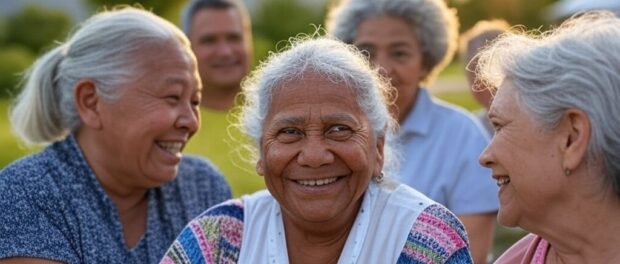10 Blue Zones Longevity Secrets from the Healthiest People on Earth

The term “Blue Zones” refers to regions of the world where people live significantly longer and healthier lives compared to the global average. These areas have been studied extensively to uncover the secrets of longevity and well-being. The concept was first introduced by National Geographic fellow Dan Buettner, who identified five specific locations where people consistently live to 90 or even over 100 years old, often free from chronic diseases. The five Blue Zones include:
- Okinawa, Japan
- Sardinia, Italy
- Nicoya Peninsula, Costa Rica
- Ikaria, Greece
- Loma Linda, California (Seventh-day Adventist Community)
Despite their geographical differences, these communities share common lifestyle traits that contribute to their exceptional longevity. Let’s explore the key longevity secrets that define the Blue Zones lifestyle.
- A Plant-Based Diet Rich in Whole Foods
People in Blue Zones primarily consume a plant-based diet, rich in vegetables, fruits, whole grains, nuts, and legumes. Meat, especially red meat, is eaten in small portions or only on special occasions. They also consume minimal processed foods and refined sugars.
- Okinawans eat a diet rich in sweet potatoes, tofu, and seaweed.
- Sardinians enjoy whole grains, beans, vegetables, and a moderate amount of dairy.
- Nicoyans consume a diet rich in beans, corn, and squash.
- Ikarians follow a Mediterranean diet high in olive oil, wild greens, and fish.
- Seventh-day Adventists in Loma Linda practice a vegetarian lifestyle, consuming nuts, grains, and legumes.
2. Natural Movement and Daily Physical Activity
Unlike modern exercise routines, Blue Zone residents engage in daily, low-intensity physical activity through natural movement. They walk frequently, work in their gardens, and do household chores. This consistent activity helps maintain mobility, strength, and cardiovascular health.
- Strong Social Connections
A deep sense of community and close social ties play a crucial role in the longevity of Blue Zone residents. People in these regions maintain lifelong friendships, prioritize family, and actively engage in social activities.
- Okinawans have “moais,” close-knit social support groups that provide lifelong companionship.
- Sardinians and Ikarians enjoy frequent social gatherings over meals and communal activities.
- Seventh-day Adventists gather weekly for spiritual and social events, reinforcing strong community bonds.
4. Purpose-Driven Living (Ikigai and Plan de Vida)
Having a strong sense of purpose, or “ikigai” (in Japan) and “plan de vida” (in Costa Rica), contributes to longevity. Knowing why you wake up in the morning and having meaningful goals lead to reduced stress, greater happiness, and a longer life.
- Stress Reduction and Mindfulness Practices
Chronic stress is a major contributor to aging and disease. Blue Zone residents have effective stress-reducing habits such as:
- Taking daily naps (Ikaria, Greece)
- Praying and engaging in faith-based practices (Loma Linda, California)
- Meditating and socializing (Sardinia, Italy)
- Engaging in mindful eating and gratitude practices (Okinawa, Japan)
6. Moderate, Regular Alcohol Consumption
In some Blue Zones, moderate consumption of alcohol, particularly red wine, is common and linked to longevity.
- Sardinians drink Cannonau wine, rich in antioxidants.
- Ikarians enjoy herbal teas and moderate amounts of homemade wine.
- Nicoyans and Seventh-day Adventists, however, generally avoid alcohol.
7. Faith and Spirituality
Most Blue Zone residents engage in spiritual or religious practices, which foster a sense of belonging, provide social support, and encourage healthy behaviors. Studies show that attending religious or spiritual gatherings can add years to one’s life.
- Healthy Sleep Patterns
Blue Zone residents prioritize sleep and rest. They go to bed early, wake up naturally with the sunrise, and avoid excessive artificial light exposure at night.
- Family First Mentality
Strong family connections and intergenerational living are key in Blue Zones. Elderly members live with or near their children and grandchildren, fostering emotional support and daily interaction, which contributes to mental and emotional well-being.
- Eating Until 80% Full (Hara Hachi Bu)
Okinawans practice “hara hachi bu,” a Confucian principle of eating until they are 80% full, preventing overeating and promoting metabolic health.
Final Thoughts: Adopting the Blue Zones Lifestyle
While moving to a Blue Zone isn’t feasible for everyone, adopting these longevity habits can significantly enhance health and quality of life. Incorporating a plant-based diet, daily movement, strong social connections, mindfulness, and purpose-driven living can lead to a longer, healthier, and more fulfilling life.
By making small yet meaningful lifestyle changes inspired by the world’s longest-living populations, anyone can embrace the Blue Zones approach to well-being and longevity.



